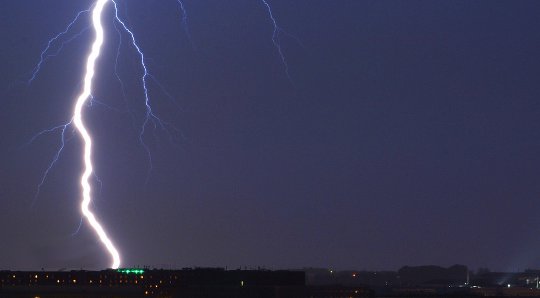
Could it be that our present assumptions about God are inaccurate, and that in some cases even the exact opposite is actually correct? Would that change our view of the world?
Has being right all these centuries done much good? Could questioning whether we may have been wrong do much harm?
Absent any willingness to put our assumptions to the test, we might as well declare our evolutionary progress ended right here. We’re not going anywhere. Things are the way they are. That’s the way they’ve always been and that’s the way they’ll always be.
Isn’t the world flat? Isn’t the earth the center of the universe, around which the sun and the stars revolve?
Being Willing to Examine Our Beliefs
If—and only if—the human race has had enough of it dysfunctional stick-to-the-story-until-the-very-end behaviors (to say nothing of its vengeful and violent acting out), will it move forward in its examination of the causes of its own conduct.
The fact is that beliefs create behaviors, and what we believe is that we have a vengeful and violent God. A jealous God. A God of wrath and retribution. “Vengeance is mine,” sayeth the Lord.
Really? Well, apparently, yes. The Holy Bible itself recounts the killing of over two million people at the hand or the command of God.
Could Our Holy Books Be Wrong About Something?
Can this be true? Or could the Bible be “wrong” about this? For that matter, could the Bible be “wrong” about anything?
And could the Qu’ran? And what of the Bhagavad-Gita? What of the Torah, the Mishna, the Talmud?
Might there be error in the Rig Veda, the Brahmanas, the Upanishads? Are there mistaken notions in the Mahabharta, the Ramayana, the Puranas? What about the Tao-te Ching, the Buddha-Dharma, the Dhammapada, the Shih-chi, or the Pali Canon?
Are we to believe every single word in the Book of Mormon?
Not all of these sources speak of a violent God, but all speak of larger truths, and millions have been touched by what they have had to say. The point: we have believed, variously, the words in all of these holy scriptures, and—to ask a fair question again—where has it gotten us? Is it time to question the Prior Assumption?
But why? What if we are wrong about God? What difference would it make?
Would it matter in any practical way in our day-to-day lives? Could it really have an effect on an entire planet?
Of course it could.
And would.
The Messenger Is Not The Message
Every thinking person must ask, first: How is it that if God has communicated God’s truths directly to human beings as so many religions assert, the messages those human beings have shared are not identical?
What is becoming more and more clear is that, while it was God who was sending these communications, it was humans who were receiving them. And it was other humans who were interpreting what they received.
To put this succinctly: While the Original Message has been clear, not all the messengers have been. Especially those who received the message from those who received the message. In other words, the interpreters of what the first messengers heard and shared.
This is not the interpreters’ fault. It simply would have to do with when, during the course of a species’ evolution, the message was initially received.
In humanity’s case, this was many thousands of years ago, and since then our species has evolved considerably—and so we have expanded in our ability to understand what the Original Message was telling us.
So let’s just admit it: the very first interpretations of the very first message may not have been totally, absolutely, and completely accurate. And that is the point here. The assertion is not that religion, per se, has gotten it all wrong. The contention is that the information may simply be incomplete—and thus, not completely accurate.
Can we just admit that?
We are starting to. It’s taken a long time, but we are starting to.
Examples of Error Retractions
Example: On April 22, 2007, the Roman Catholic Church reversed its hundreds-year-old teaching on Limbo.
For hundreds of years the church taught that the souls of infants who die without being baptized would find themselves in a place called Limbo, where they would be eternally happy, but would be denied “the beatific vision.” In other words, they would not be in the company or the presence of God.
Then in 2007, an advisory body to the church, known as the International Theological Commission, released a document entitled “The Hope of Salvation for Infants Who Die without Being Baptized.” In that pronouncement—the publication of which was authorized by Pope Benedict XVI, indicating his approval of it—the commission said that the age-old interpretation of the Original Message surrounding the denial of an infant soul’s direct entry into heaven may not be accurate after all.
The conclusion of the Catholic Church, in the words of the commission, “is that the many factors that we have considered . . . give serious theological and liturgical grounds for hope that un-baptized infants who die will be saved, and enjoy the beatific vision.”
Then the church document offered an astonishing and hugely important admission:
“We emphasize that these are reasons for prayerful hope, rather than grounds for sure knowledge. There is much that simply has not been revealed to us.” (Italics mine.)
That remarkable statement suggests that a body as august as the Most Holy Roman Catholic Church holds that, even as late at the twenty-first century, not everything about God has been disclosed. Meaning, presumably, that there is more to be revealed.
This is not a small announcement.
Example: In 1978, the Church of Jesus Christ of Latter-day Saints (the LDS Church, or Mormons) reversed its long-standing prohibition against ordaining black men to the priesthood.
Its refusal to do so for 130 years from its founding in 1849 was said to be based on its reading of scripture, which produced the view that black men and women had inherited the so-called “curse of Ham.” This notion not only served to prohibit black men from being priests, it was grounds to forbid both black men and black women from taking any part at all in ceremonies in LDS temples.
It was a case of blacks not allowed in any Mormon Temple—which were nevertheless thought to be the sacred houses of God. Mormons once believed the supposedly relevant scripture passage occurs in the Book of Genesis and concerns Noah’s drunkenness and the accompanying shameful act perpetrated by his son Ham, the father of Canaan.
The Wikipedia article on this subject goes on to say that “the controversies raised by this story regarding the nature of Ham’s transgression, and the question of why Noah cursed Canaan when Ham had sinned, have been debated for over two thousand years. The story’s original objective was to justify the subjection of the Canaanites to the Israelites, but in later centuries, the narrative was interpreted by some Jews, Christians, and Muslims as a curse of, and an explanation for, black skin, as well as slavery.”
Whatever the case, in 1978 the church’s First Presidency and the Twelve, led by Spencer W. Kimball, declared that they had received a revelation instructing them to reverse the racial restriction policy.
The ban on black priests was lifted in a statement known as “Official Declaration 2” based, it should be noted again for emphasis, on what the church insisted was a revelation from God. (Italics mine.)
That remarkable statement suggests that a body as august as the Church of Jesus Christ of Latter-day Saints holds that, even as late as the twenty-first century, not everything about God has been disclosed—and revelations are now being received by regular, normal human beings.
This is not a small announcement.
Wait a minute. Let’s not just skim over that. Let’s give it more than a once over lightly.
A Modern Revelation from God in 1978 and in 2007?
A revelation from God has been openly acknowledged by a worldwide religion as recently as 1978?
Yes.
A major change in ancient doctrine has been approved by the world’s largest Christian church as recently as 2007? Yes.
So then, direct revelation from God apparently did not occur only in ancient times—and did not stop then, either. This brings up an interesting question. Is it possible that human beings are receiving revelations from God even now? Yes.
But is revelation limited to presidents of churches and Popes? Have only a few human beings received revelations from God?
No.
Now comes A Great What if . . .
What if the number of people who have had conversations with God is unlimited?
What if the list includes every human being who has ever lived, is living now, and ever will live?
What if God is talking to everyone, all the time? What if it’s not a case of to whom God is talking, but who’s listening?
Could such a thing be true?
The very idea shakes the foundation of our present reality. Yet here is an interesting observation from Mother Meera:
“One common mistake is to think that one reality is the reality. You must always be prepared to leave one reality for a greater one.”
Indeed.
The Messengers are the Vessels of the Message
Let us be clear on one thing: all the messages that humanity has received about God, from the beginning of recorded history to this very day, have come through human beings.
Let us be so clear about this that we say it again, in capital letters.
All the messages that humanity has
received about God, from the beginning
of recorded history to this very day,
HAVE COME THROUGH HUMAN BEINGS.
God is revealing divinity to humanity through humanity continually.
God has never stopped and God never will.
The Continuing Revelations of The Divine
Humanity is now growing in its ability to hear God’s revelations more clearly, and to interpret them more accurately.
This is a result of humanity’s maturation as a species.
Now, after many thousands of years, we have advanced to the point where we are developing both an open mind and an open ear for the continuing revelations of The Divine.
We have grown to accept that receiving such revelations even today—not just in “the old days”—is possible, and we have expanded our ability to directly experience this as a reality.
It has helped that, while it has taken many, many generations to do so, we have finally begun distancing ourselves from unquestioning allegiance to the teachings of the past.
We are allowing ourselves to take what is good from those teachings and continue to apply it, but also to sift and sort what is dysfunctional, releasing ourselves, finally, from the limiting and psychologically damaging impact of many of those ancient interpretations of the Original Message.
Let’s begin doing so at a new level.
Let’s begin right now.
Subtitles by InnerSelf.
©2014 by Neale Donald Walsch. All Rights Reserved.
Reprinted with permission of the publisher: Rainbow Ridge Books.
Article Source:

God's Message to the World: You've Got Me All Wrong
by Neale Donald Walsch.
Click here for more info and/or to order this book.
About the Author
 NEALE DONALD WALSCH is the author of nine books in the Conversations with God series, which have sold over ten million copies in 37 languages. He is one of the major authors in the new spirituality movement, having written 28 other books, with eight books on the New York Times bestseller's list. His life and work have helped to create and sustain a worldwide spiritual renaissance, and he travels globally to bring the uplifting message of the CwG books to people everywhere.
NEALE DONALD WALSCH is the author of nine books in the Conversations with God series, which have sold over ten million copies in 37 languages. He is one of the major authors in the new spirituality movement, having written 28 other books, with eight books on the New York Times bestseller's list. His life and work have helped to create and sustain a worldwide spiritual renaissance, and he travels globally to bring the uplifting message of the CwG books to people everywhere.






























